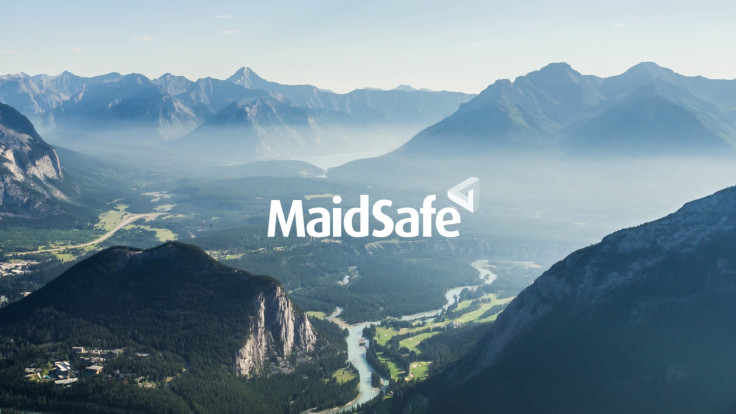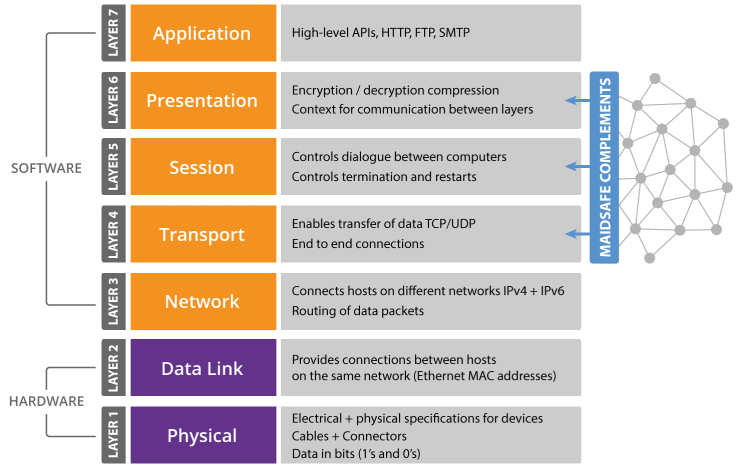MaidSafe rebuilding secure decentralised internet with BnkToTheFuture equity fundraising
MaidSafe's funding on BnkToTheFuture begins on 12th September and runs for 30 days.

Out of the billion or so desktops and PCs currently hooked up to the internet, an estimated 50 gigabytes of unused storage is languishing on each of those machines. That's about 250,000 petabytes of unused storage space. To put that into context, Google is thought to store about 8000 petabytes. This enormous untapped resource far eclipses anything in any company that exists today.
However, almost all our personal data is centrally stored today, controlled by large companies, many of whom choose to sell it on at a profit, or on request provide it to governments without our knowledge.
Not only is this unpalatable to most people, it's inherently insecure; an entire industry exists dealing in stolen credit card details, passwords and the like.
MaidSafe is leveraging unused computing capacity to rebuild the internet in a secure, decentralised manner: what it calls the SAFE Network (Secure Access For Everyone). Network users are incentivised to share their unused storage space by being rewarded with safecoins, MaidSafe's native currency.
Thanks to its focus on decentralisation, MaidSafe is often categorised within the blockchain space, when in fact the company was established in 2006 and predates the intense interest in distributed ledger technology which has come about since Bitcoin went mainstream around 2013.
Riding this wave of interest to some extent, MaidSafe is announcing an equity fund raising on Simon Dixon's BnkToTheFuture platform. BnkToTheFuture provides qualifying investors with protected investment vehicles that provide due diligence and exposure to cutting edge technology. The minimum investment on the platform is £1000.
MaidSafe's funding begins on 12<sup>th September and runs for 30 days. The target is £1.75m-£2m which will be received in sterling and bitcoin. Nick Lambert, chief operating officer, MaidSafe told IBTimes UK: "This is a raise for equity as opposed to a coin sale. It's most certainly not crowdfunding.
"It's a funding platform for sophisticated investors, which are self-certified on the platform, having fulfilled the criteria required to invest."
Lambert said the platform's structure, using a special purpose vehicle (SPV), allows investors to partake from any jurisdiction, adding that there are about 20,000 signed up investors on BnkToTheFuture.
MaidSafe is taking a radical approach to the problem of centralisation – and as such are early proponents of a growing cause célèbre, now being championed by the likes of Ethereum-based Swarm, and Juan Bennet's IPFS system.
Lambert said: "The network is using all the hardware and networking layers of the existing internet, but replaces everything above, essentially it replaces all web services.
"There are seven layers to the internet and we are replacing three of them. Other projects working on similar objectives have taken less radical approaches".
MaidSafe proposes replacing data centres and servers with the spare computing resources of all of its users, who can download the alpha version which enables users to create SAFE websites, store private data, host websites and share public data.
"They can start to add data to the network and in time they will be able to create websites and basically any type of web service that exists today. This could be social media apps like Facebook, Twitter, LinkedIn, or it could be cryptocurrency exchanges like Poloniex or maybe a more secure Bitfinex."

Instead of using a blockchain design, where the entire network must agree on state, MaidSafe polls a subset of nodes, a unique system it calls "close group consensus". This allows the network to agree pretty much instantly that a user based in London confirms they have 45 gig of data, for example.
"Having transactions confirming at speed is essential when you are operating a data network," said Lambert. "Imagine you were trying to get up a vital piece of data and you have got to wait 60 mins for the network to agree that you can actually access that data; it's obviously unacceptable. We need to be able to confirm network states in seconds rather than in minutes and hours."
MaidSafe uses distributed hash tables (DHT) to secure the system, including the issuance of safecoins used to incentivise users. Michael Jackson, the former COO of Skype has helped in advising MaidSafe about encouraging participation in the network.
Lambert said: "We talked a lot about Skype which had a kind of supernode model. They tried to have people run hardware at home and on their behalf, but they provided no incentive for people to do that and ultimately that supernode thing didn't really work.
"Our belief at least is that you need to incentivise people to do this, because providing your resource to the network is not entirely free. Even if you have unused computing resource, you still need to pay for the electricity, and if you have got an internet cap where you live then you have got bandwidth considerations as well.
"If people run their computers at home and data is stored in these encrypted chunks and then taken off their computer, they are rewarded by the network in these safecoins.
"People can either spend those coins by using services on the network or they can take them to an exchange and exchange them into bitcoin or into cash.
"It's very akin to bitcoin mining. The major difference being that the SAFE Network uses proof of resource (POR) as opposed to proof of work. POR ensures all resource provided is meaningful and avoids many of the environmental issues that surround the proof of work model.
© Copyright IBTimes 2025. All rights reserved.






















